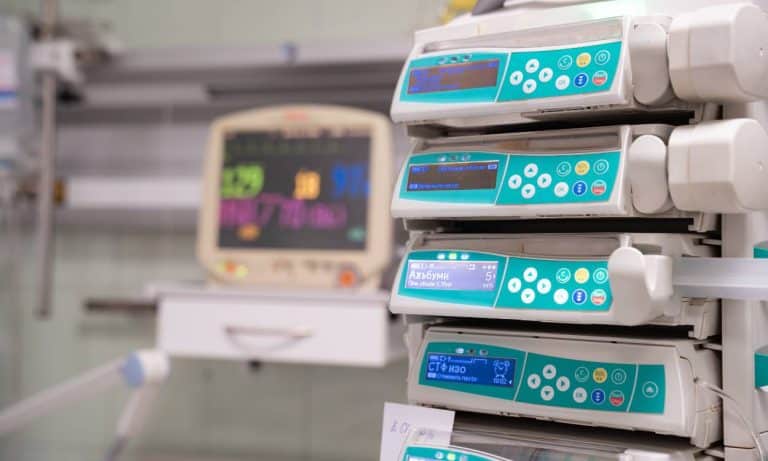HOW TO BETTER PREPARE MENTALLY FOR LIFE AFTER COVID-19
How unpredictable are our lives? In the past year, life as we know it has quickly turned into the unexpected, uncertain, and unimaginable chaos that it is today. Much has changed for people in all walks of life since March 2020, and with the daily skyrocketing cases reported in India’s second wave and the accompanying surge in deaths, it looks like we have a long battle ahead of us. It is becoming increasingly difficult to imagine a life after COVID-19.
Widespread nationwide lockdowns, system-wide complacency, and a lack of healthcare infrastructure have caused irreversible damage and unimaginable horrors. Markets are falling and companies are reeling. Families struggling to find the necessary medical intervention or simply to keep food on the table are bitter realities that we are forced to face today.
But there is an invisible crisis that is hardly talked about. While everyone is busy dealing with the dire physical consequences of the pandemic, there is a hidden impact that could cost more over time. That’s the crisis of deteriorating mental health during the pandemic, a concern that only gets worse with negligence as the battle against COVID-19 drags on.
THE EFFECTS OF COVID-19 ON EVERYONE
The current pandemic could leave generations mentally scarred for the rest of our lives. Frontline workers who took an oath to treat the sick as best they could face trauma like no other. From dreaming of saving lives to trying and deciding who lives, these COVID warriors will carry a heavy emotional burden even after the pandemic.
For our parents, this is a scary time. COVID-19 and the news of death around you act as a constant reminder of your own mortality. The world they knew and the people who gave them familiarity is shrinking.
For children growing up in this climate, their innocence is lost much sooner than it should. Children mature faster these days. Additionally, today’s kids are growing up completely separate from their peers and could grow up to be even more lonely a generation than today’s Gen Z
Young adults with a memory of a pre-covid world are not in a better position as they grapple with the uncertainty of their life after COVID-19. With universities closed, job market opportunities scarce, and continued peer pressure thanks to social media, the past 12 months have been rewarding for these young people.
Here are some ways we could build emotional resilience and better mentally prepare for life after COVID-19.
1). ACCEPTANCE OF THE NEW REALITY
To begin with, we must all mourn the loss of life as we knew it and bury the dreams of what we had planned for the next few years. We need to confront the new reality and accept it fully. Complete acceptance requires letting go of thoughts like “what if,” “wish,” “if only,” “should be,” or “should have been.”
We need to accept our new reality as it is: a reality full of uncertainty, fear of infection, and an incomplete future. Many of us believe that acceptance is meek, passive, and an act of the weak, but it is quite the opposite. Acceptance requires tremendous courage to face the harsh realities of current circumstances.
2). PROCESS IT, DON’T NUMB IT
We all love running away from our emotions. We prefer to overlook, neglect, ignore, or numb feelings because, let’s be honest; we don’t know how to deal with them.
Today, we are dealing with a tsunami of emotions, and we have no idea where to start. How do you work your way through the pile without breaking down under the weight of all these emotions?
And then we look the other way. We pretend that these feelings don’t exist. We watch Netflix, or worse, we turn to alcohol and drugs to numb the pain. But that doesn’t solve it. It is only temporarily forgotten like the waves crashing back into the ocean. But the waves return, and so do these emotions: they will return and return stronger than ever.
3). SEEK AND PROVIDE EMOTIONAL SUPPORT
Be sure to check how your loved ones are doing. Take a few steps beyond “How are you?” to really know if they are doing it right. Ask them what their mental health is like in these times. Are they sleeping well? How are they dealing with uncertainty and fear?
If they open up to you, keep space and pay a listening ear without judgment. Don’t be too quick to share your stories or offer unsolicited advice. Let them know that you are there for them and that it is okay to seek professional help if they cannot cope.
4). STAY CONNECTED WITH YOUR TRIBE
I firmly believe in the power of the collective. Whatever your tribe, be it a subset of co-workers, an art class gang, training friends, fellow entrepreneurs in a networking group, or the extended family of friends and cousins, support and seek support from the collective find some comfort during these times. .
There is great relief in knowing that you are not alone, particularly when we are estranged from the people we love and restricted from doing things we love.
Take advantage of technology to at least keep conversations going. Zoom sessions to the rescue! Whether creating art together or online to sweat up and burn those calories, make sure to stay connected with your tribe, especially as you envision life after COVID-19.
5). MAKE TIME TO CREATE MOMENTS OF JOY
While the battle against the virus may seem daunting, it is essential to cultivate practices that bring us joy — whether it is that meditation in the dark and quiet before dawn, that cup of coffee on the balcony, recording thoughts and emotions, completing a crossword puzzle.
Get involved in activities beyond the constant COVID chatter that brings you moments of joy even in these times of crisis. It may be the little things, but they can help preserve your sanity and restore mental balance.
IS IT ALL A LOSS?
We all lose something as we defend humanity against this deadly virus. Many of us will mourn the loss of loved ones and try to fill a void that can never be filled, and most of us will leave a part of ourselves because life will never be the same again.
As the saying goes, “no man ever steps on the same river twice, because it is not the same river and it is not the same man.”
FINAL THOUGHTS
I firmly believe that the pandemic will also be a time of awakening, where we finally open our eyes to what really matters as we yearn for life after COVID-19.
Perhaps, once the pandemic is behind us, we will find more joy in the everyday things we took for granted. The morning rush to get kids ready for school, trips to work, boring office parties, water cooler conversations, and weekends. We will probably be most grateful for the freedom to hang out with friends, visit our parents, or take a vacation. We will be more present and create lasting memories, from simple birthday celebrations with friends to our big fat Indian weddings. We will love more, laugh more, and appreciate more.
For More Information Please Visit www.lifestylebuz.com






